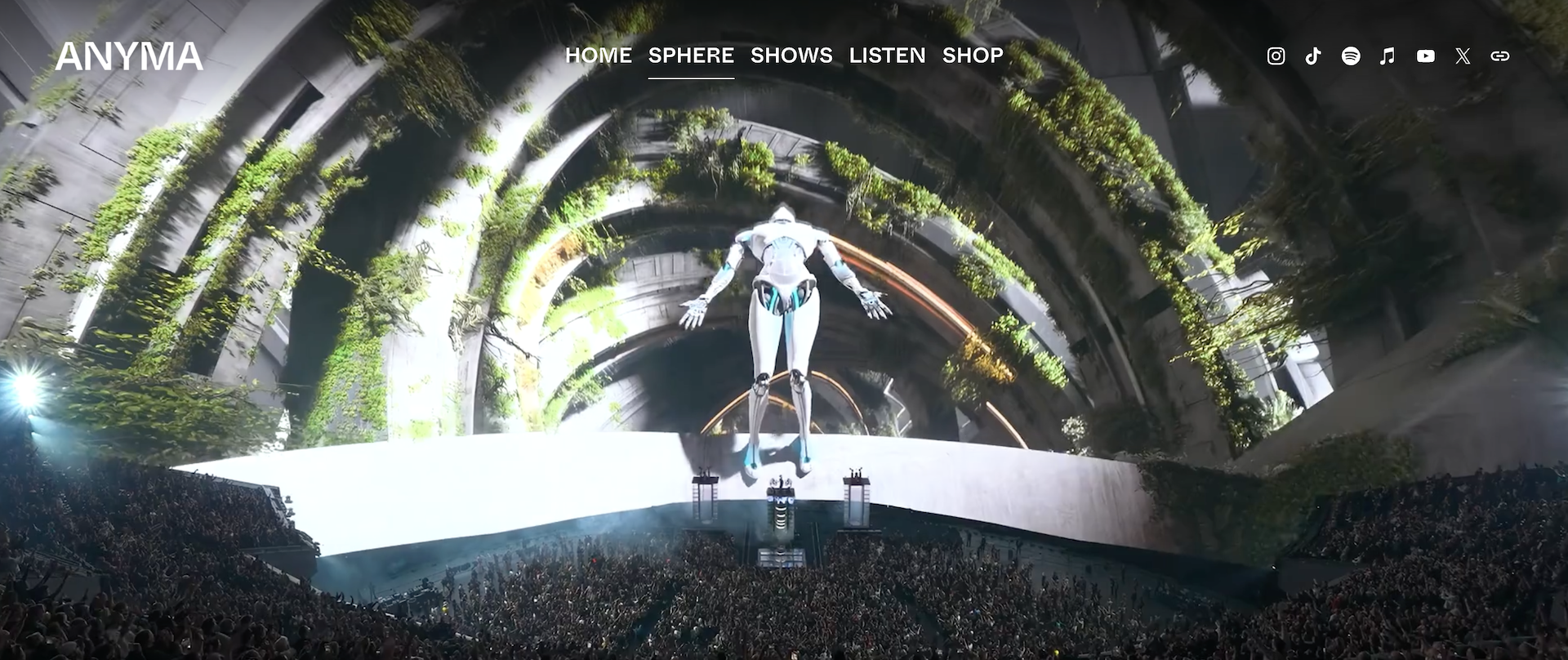
THANK YOU FOR YOUR REQUEST
Thank you very much for your interest in EIDETIC MARKETING.
We look forward to working with you.
We will contact you soon.Thanks Again.

THERE WAS A PROBLEM WITH YOUR SUBMISSION.
Have you checked all the required fields?
We want you to write your Company, Name, E-mail, Budget, Country to Execute, Website URL, Wanted Services and Project Description.Thanks.
What is the Biggest Sphere in the World?
August 17, 2025
Sphere LEDs are quickly becoming one of the most powerful tools for brand storytelling. Unlike standard billboards or flat LED screens, these massive spherical displays double as city landmarks and immersive media platforms. As more companies look to leverage this medium, common questions have emerged around how Sphere LEDs work, how to create effective content for them, and what advertising costs involve.
This FAQ brings together the most common questions and answers to help you understand the essentials of Sphere LED marketing and production.
What is a Sphere LED?
A Sphere LED is a spherical structure covered with LED panels, providing a 360-degree viewing angle. Unlike flat LED screens, its curved design creates a more immersive and dimensional experience, making it ideal for landmark advertising and large-scale storytelling.
What are the most famous Sphere LED locations worldwide?
Some of the most famous examples include the Las Vegas Sphere, the Riyadh Sela Sphere, and the Mall of Asia Globe in Manila. For a full overview of seven iconic locations, see our detailed guide: The Most Famous 7 Sphere Locations in the World.
The Las Vegas Sphere is the world’s largest spherical structure. It rises 366 feet (about 111 meters) tall and spans 516 feet (about 157 meters) at its widest point. Its exterior is covered with 580,000 square feet of LED panels, making it not only the biggest sphere ever built but also one of the most advanced digital canvases in the world. Image by Y2kcrazyjoker4
Image by Y2kcrazyjoker4
Las Vegas Sphere: Key Facts
The architecture was led by Populous, with interior and lighting design by ICRAVE. The building spans eight floors with more than 300,000 square feet of interior space, including lobbies and VIP zones. The exterior LED is made up of more than 1.23 million puck-shaped lighting modules, designed to create seamless visuals across the curved surface.
The venue seats about 17,600 people and can accommodate up to 20,000 including floor space.
How is wraparound or dimensional video achieved on Sphere LEDs?
Content creators typically use 3D animation and simulation to match the curvature of the sphere. Depth and perspective are enhanced through movement, lighting, and shading effects. Seamless integration between panels ensures a continuous image, while full wraparound video covers the surface for maximum impact.
A clear example is the Anyma show at the Las Vegas Sphere. The visuals projected onto the massive curved screen created the illusion of towering structures and lifelike digital figures surrounding the audience. This immersive design highlighted how dimensional video can transform a concert into a fully enveloping experience.
Building a Sphere LED requires a significant investment. Even a small pavilion–sized structure can cost around 2 million dollars to install. The price reflects not just the LED panels but also the engineering, power systems, and integration needed to create a seamless spherical display. By comparison, the Las Vegas Sphere—with its 580,000 square feet of exterior LED—represents a multi-billion dollar project.
Closing Note
Installing a Sphere LED is not the same as working with flat screens. Because of its curved structure, only a limited number of technicians can work on it at once, which makes installation more time-consuming. For exhibitions with a short preparation period, a Sphere may not be the most practical choice. It’s possible, but often not recommended.
That said, there are many effective alternatives. Curved panoramic screens can deliver a similar sense of scale. Immersive 3D video content alone can also create a powerful effect for audiences.
Our work demonstrates how these alternatives can work in practice:
✓ Link & Co Portfolio: 90m × 8m panoramic LED stage — full management and execution
✓ San Diego Comic-Con: 3-sided LED installation with dimensional wraparound effects [Youtube link]
👉 Explore more in our live event video portfolio: [Link & Co Portfolio]












